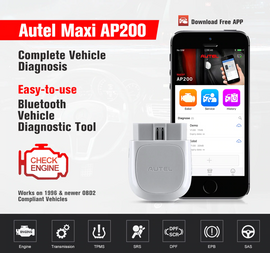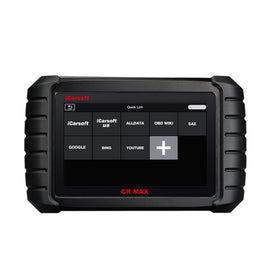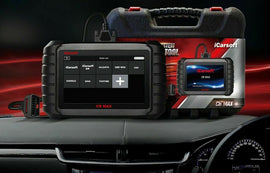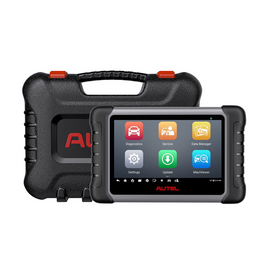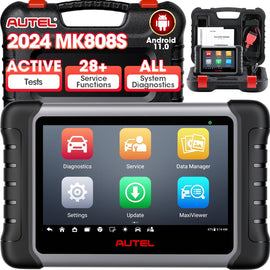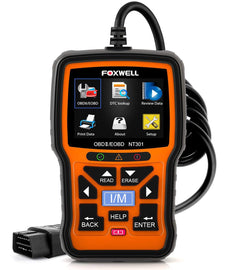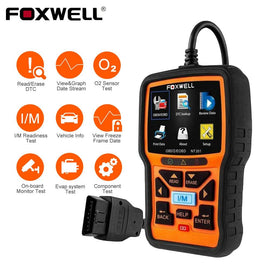In logistic-driven business models, efficiency, safety, and cost control are the main aspects; therefore, having a GPS tracker for business fleets is no longer just an idea, but a necessity. The best systems ensure features like real-time data visibility, better and timely decision-making, along with streamlined options.
Much like automotive diagnostic tools that provide insights into vehicle health, GPS trackers deliver continuous fleet performance monitoring.
Let’s talk about how these systems work and why you might need this innovative tool.
What Is GPS Fleet Tracking?
A technology-based solution called GPS fleet tracking makes use of the Global Positioning System (GPS) to track the whereabouts, activities, and condition of assets and vehicles in a fleet.
Fleet managers can view their entire operation from the comfort of their desktops or smartphones thanks to the integration of GPS trackers with cloud-based management platforms.
Most drivers are accustomed to using GPS navigation for personal travel, but GPS fleet tracking goes one step further and is a necessary element of effective and safe fleet management.
Growing Market for Fleet Telematics and GPS Trackers in Australia
The commercial vehicle market in Australia is expected to grow at a compound annual growth rate (CAGR) of 4.83%, from US $15.79 billion in 2024 to US $24.14 billion by 2033.
The expansion of the mining and construction industries, increased demand for freight transportation, and significant government infrastructure spending are the main drivers of this growth. The market is further shifting toward sustainability as a result of the growing use of electric commercial vehicles.
In Australia's vast terrain, commercial vehicles, such as trucks, vans, and buses, are essential to sectors like urban delivery, mining, agriculture, and logistics. These vehicles are the foundation of supply chains, ranging from light vans managing last-mile e-commerce orders to heavy-duty trucks transporting goods over long distances.
Basically, such a system locates each vehicle using GPS modules and sends that information to a central management platform via satellite or cellular networks. Route optimisation and dispatch coordination are aided by this real-time location data, which is fed into fleet oversight.
Many cutting-edge systems interface with automotive diagnostic tools, using GPS trackers connected to OBD to retrieve vehicle performance data for proactive diagnostics, including fuel consumption, mileage, fault codes, and engine health.
Key Technological Options: 3G, 4G, and Beyond
Technology integration is becoming increasingly crucial to fleet operations. Due to pressure on operators to boost efficiency, reduce emissions, and control costs, fleets of all sizes are using the best GPS auto tracker for cars & telematics systems.
Businesses are adopting systems like the best GPS tracking system for fleets as a result of government-backed green mobility initiatives, massive infrastructure projects, and the expanding e-commerce sector.
Predictive maintenance, real-time supervision, and adherence to safety rules are all guaranteed by these systems.
Companies have a variety of connectivity generations to choose from:
-
3G GPS tracker: Still in use, but frequently constrained by dwindling network support and slower data speeds.
-
4G GPS tracker: Provides greater coverage, quicker data transfers, and greater future-proofness. Perfect for fleets that require large data analytics, dashcam integration, or frequent updates.
-
Satellite tracking: Essential for operations in remote or outlying areas with limited cellular coverage.
For complete coverage, fleets operating in long-haul or rural areas may combine satellite and cellular (3G/4G) technology.
Business Fleet GPS Tracker Benefits
When you get a GPS tracker for business fleets, you can enjoy some of the amazing benefits:
-
Operational efficiency: Dynamic routing is made possible by real-time location data, which reduces idle time and fuel consumption.
-
Safety and compliance: To prevent accidents and adhere to legal requirements, keep an eye on driver behaviour, excessive braking, and speeding.
-
Vehicle health monitoring: Telematics or OBD feeds warn of impending maintenance requirements, cutting down on expensive repairs and downtime.
-
Security: When necessary, remotely immobilise vehicles, enforce geofencing, and track stolen vehicles.
-
Data-driven insights: AI and telematics support trend analysis, performance enhancement, and decision optimisation.
Choosing the Best GPS Tracking System for Fleets
Want to buy GPS trackers in Australia? Now that choosing the best GPS tracking system for fleets requires striking a balance between features and needs:
|
Feature |
Recommendation |
|
Connectivity |
Opt for a 4G GPS tracker where possible—offers speed and future resilience. Satellite fallback helps remote operations. |
|
Integration |
OBD-compatible devices enable diagnostic insights via automotive diagnostic tools. |
|
Real-time features |
Choose platforms offering geofencing, live alerts, and driver behaviour monitoring. |
|
Analytics & AI |
Systems with predictive maintenance and intelligence analytics boost ROI. |
|
Local support |
Vendors with a strong Australia/New Zealand presence (Teletrac, MTData, Geotab) ensure better service and compliance. |
Regulatory & Legal Considerations in Australia
Although there isn't a single federal law, tracking devices are regulated in a number of Australian states:
-
States with laws pertaining to workplace privacy or surveillance include NSW, WA, VIC, ACT, and NT.
-
Following applicable Surveillance Devices Act and Workplace Surveillance Act statutes, GPS tracker use must take employee privacy, consent, and data protection into account.
Legal counsel or vendor compliance teams should be consulted in order to avoid disputes.
Conclusion
Investing in a GPS tracker for business fleets is no longer optional but a critical step toward efficiency, safety, and compliance in Australia’s competitive logistics landscape.
By integrating advanced telematics with an OBD-based diagnostic scan tool for Australian cars, businesses can proactively manage vehicle health, reduce downtime, and optimise operational costs. Auto Lines Australia provides reliable GPS trackers and diagnostic tools tailored to local industry needs, helping businesses gain real-time insights, safeguard assets, and ensure long-term growth in today’s evolving transportation sector.
FAQs
1. How does a GPS tracker for business fleets improve operations?
A GPS tracker for business fleets improves operations by providing real-time vehicle visibility, reducing fuel costs, ensuring driver accountability, streamlining routes, enhancing customer service, preventing delays, improving safety, and offering data-driven insights for smarter fleet management decisions.
2. What is the best GPS tracking system for fleets in 2025?
The best GPS tracking system for fleets in 2025 combines AI-driven analytics, cloud connectivity, real-time monitoring, predictive maintenance, and customizable dashboards, empowering businesses in Australia to optimise productivity, improve compliance, reduce costs, and maximise operational efficiency.
3. What are the key benefits of a business fleet GPS tracker?
The key benefits of a business fleet GPS tracker include improved vehicle utilisation, reduced downtime, cost savings, better compliance, enhanced driver safety, route optimisation, maintenance alerts, theft prevention, and real-time insights that help fleet managers make smarter operational decisions daily.

